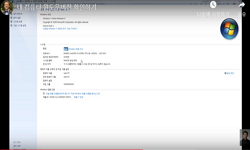Exclamations may be defined as part of speech for words used to express the feelings of human beings. Interjections can be either distinguished from exclamations or included in exclamations. In this paper, it is interjectional expressions that refer t...
http://chineseinput.net/에서 pinyin(병음)방식으로 중국어를 변환할 수 있습니다.
변환된 중국어를 복사하여 사용하시면 됩니다.
- 中文 을 입력하시려면 zhongwen을 입력하시고 space를누르시면됩니다.
- 北京 을 입력하시려면 beijing을 입력하시고 space를 누르시면 됩니다.
https://www.riss.kr/link?id=A104071512
-
저자
문순덕 (제주대학교)
- 발행기관
- 학술지명
- 권호사항
-
발행연도
2005
-
작성언어
-
-
주제어
interjection ; volitional interjection ; invoking word ; favoriteinterjection ; repeat ; positive answer ; confirmation. ; 간투 표현 ; 의지적 간투사 ; 부름말 ; 입버릇 ; 되물음 ; 확인 ; 첨사. ; interjection ; volitional interjection ; invoking word ; favoriteinterjection ; repeat ; positive answer ; confirmation.
-
등재정보
KCI등재
-
자료형태
학술저널
- 발행기관 URL
-
수록면
161-188(28쪽)
-
KCI 피인용횟수
5
- 제공처
- 소장기관
-
0
상세조회 -
0
다운로드
부가정보
다국어 초록 (Multilingual Abstract)
The invoking interjections such as ‘yang/ye’ are available not only when speakers are on intimate terms with hearers but also when they don't know well each other. The favorite interjections, ‘jeo-yang’ and ‘jeo-yi’ can be uttered as a way of drawing attention at the beginning stage of the main conversation. The repeating interjections, which include ‘yang’, ‘eung’ and ‘yi’, are used to repeat and confirm a speaker's questions. As a form of positive answer, ‘ge’ is used to express a strong volition of speaker. Another form of positive answer, ‘giyeo’ seems to be uttered to reflect somewhat stronger psychology of approval for the speaker's questions. The confirmative interjections, ‘gi’ includes the meanings of confirmation, repeat, surprise, approval and, question. It is realized as ‘gi’ chiefly for the female speakers and as ‘ginya’ mainly for the male speakers.
Exclamations may be defined as part of speech for words used to express the feelings of human beings. Interjections can be either distinguished from exclamations or included in exclamations. In this paper, it is interjectional expressions that refer to the informal sentences expressed in terms of interjec tions. They include both invoking words in which a speaker's volition is implied to some extent, and answer-marking words such as ‘ye’ and ‘anio’. This being the case, this paper focuses on exploring ‘eung’ and ‘giyeo’ as a positive answering type of speech used to express a speaker's own ides depending on the situation of utterance, and also on interjectional expre ssions(invoking words, favorite interjections, repeating words, confirming words) in such particles of Jeju Dialect as ‘yang/ ye, yi, gi, ge’.
The invoking interjections such as ‘yang/ye’ are available not only when speakers are on intimate terms with hearers but also when they don't know well each other. The favorite interjections, ‘jeo-yang’ and ‘jeo-yi’ can be uttered as a way of drawing attention at the beginning stage of the main conversation. The repeating interjections, which include ‘yang’, ‘eung’ and ‘yi’, are used to repeat and confirm a speaker's questions. As a form of positive answer, ‘ge’ is used to express a strong volition of speaker. Another form of positive answer, ‘giyeo’ seems to be uttered to reflect somewhat stronger psychology of approval for the speaker's questions. The confirmative interjections, ‘gi’ includes the meanings of confirmation, repeat, surprise, approval and, question. It is realized as ‘gi’ chiefly for the female speakers and as ‘ginya’ mainly for the male speakers.
참고문헌 (Reference)
1 "한국어의 입말과 글말" 국학자료원 1996
2 "한국어의 감탄문" 국학자료원 1997
3 "한국어 문장 의미론" 도서출판 박이정 2001
4 "한국어 담화 표지 분석" 연세대 한국어학당 17 : 21-38, 1992
5 "제주어 사전" 제주도 1995
6 "제주도 방언의 존대법" 국어국문학회 1-36, 1977
7 "제주도 방언 존대법의 특징 국립국어연구원" 83-3 93, 1991
8 "제주도 방언 어휘고 곡용에서의 ‘-마씀’을 중심으로" 29-51, 1975
9 "제주 방언 반말체 첨사의 담화 기능" 영주어문학회 5 : 71-86, 2003
10 "제주 방언 높임말 첨사의 담화 기능 예’를 중심으로" 한국현대언어학회 20 (20): 71-87, 2005
1 "한국어의 입말과 글말" 국학자료원 1996
2 "한국어의 감탄문" 국학자료원 1997
3 "한국어 문장 의미론" 도서출판 박이정 2001
4 "한국어 담화 표지 분석" 연세대 한국어학당 17 : 21-38, 1992
5 "제주어 사전" 제주도 1995
6 "제주도 방언의 존대법" 국어국문학회 1-36, 1977
7 "제주도 방언 존대법의 특징 국립국어연구원" 83-3 93, 1991
8 "제주도 방언 어휘고 곡용에서의 ‘-마씀’을 중심으로" 29-51, 1975
9 "제주 방언 반말체 첨사의 담화 기능" 영주어문학회 5 : 71-86, 2003
10 "제주 방언 높임말 첨사의 담화 기능 예’를 중심으로" 한국현대언어학회 20 (20): 71-87, 2005
11 "전남 방언 사전" 태학사 1998
12 "언어 행위와 듣는 이의 신호에 관한 화용론적 분석 시도" 55-14 70, 1989
13 "아니다’에 관한 고찰 제주도 중등국어교육 연구회" 42-62, 1994
14 "남한 방언 검색 시스템 시디" 문화관광부/국립국어연구원 2001
15 "남 기심ㆍ고 영근" 탑출판사 1993
16 "국어의 간투사 연구" 1995
17 "국어 의문문 연구" 탑출판사 1987
18 "국어 간투사의 위상 연구" 1988
19 "경북 방언 사전" 태학사 2000
20 "감탄사 발달사" 한국어 의미학회 9 : 67-96, 2001
동일학술지(권/호) 다른 논문
-
- 한글학회
- 이강로
- 2005
- KCI등재
-
- 한글학회
- 최규수
- 2005
- KCI등재
-
- 한글학회
- 송기형
- 2005
- KCI등재
-
한국어 음절 말 폐쇄음에 대한 음향 및 청각 음성학적 연구
- 한글학회
- 양순임
- 2005
- KCI등재
분석정보
인용정보 인용지수 설명보기
학술지 이력
| 연월일 | 이력구분 | 이력상세 | 등재구분 |
|---|---|---|---|
| 2027 | 평가예정 | 재인증평가 신청대상 (재인증) | |
| 2021-01-01 | 평가 | 등재학술지 유지 (재인증) |  |
| 2018-01-01 | 평가 | 등재학술지 유지 (등재유지) |  |
| 2015-01-01 | 평가 | 등재학술지 유지 (등재유지) |  |
| 2011-01-01 | 평가 | 등재학술지 유지 (등재유지) |  |
| 2009-01-01 | 평가 | 등재학술지 유지 (등재유지) |  |
| 2007-01-01 | 평가 | 등재학술지 유지 (등재유지) |  |
| 2004-01-01 | 평가 | 등재학술지 선정 (등재후보2차) |  |
| 2003-01-01 | 평가 | 등재후보 1차 PASS (등재후보1차) |  |
| 2002-01-01 | 평가 | 등재후보 1차 FAIL (등재후보1차) |  |
| 1998-07-01 | 평가 | 등재후보학술지 선정 (신규평가) |  |
학술지 인용정보
| 기준연도 | WOS-KCI 통합IF(2년) | KCIF(2년) | KCIF(3년) |
|---|---|---|---|
| 2016 | 0.84 | 0.84 | 0.77 |
| KCIF(4년) | KCIF(5년) | 중심성지수(3년) | 즉시성지수 |
| 0.87 | 0.83 | 1.332 | 0.3 |




 DBpia
DBpia







